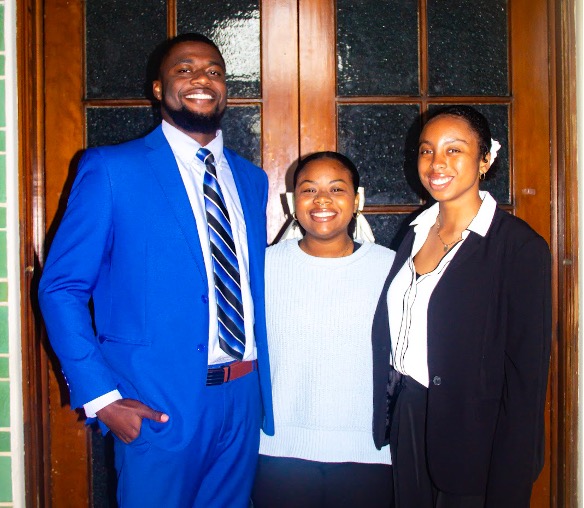Get in touch: (800) 551-3410

The Juris Education Interview Team
Phaedra Hyche is the former Co-Captain and current Forensics Captain of the Debate and Forensics team at Hampton University, along with Saniya Acree and Stephen Shields, the Debate Co-Captains.
For debate, we perform individual parliamentary debate (IPDA) and partner parliamentary debate (NPDA), as well as a range of upwards of 17 different forensics events, most under AFA, while some are exclusive to other tournaments.
By participating in debate, students gain invaluable skills in critical thinking, argumentation development, analysis of arguments, and, of course, public speaking.
One of our favorite things to say is that we’re a team, not a club. Therefore, we spend hours a week together working on/performing forensics pieces and constructing and having debates. It is important to be able to manage your time effectively so your schoolwork isn’t neglected. However, the sense of camaraderie that is developed under such intensive practices is unmatched, and not only are skills refined, but lifelong friendships are made. While you are forming relationships, you are also developing lifelong skills. The hard work is worth the reward.
Many students join our debate team who struggle with speaking up and utilizing their voices. However, through consistent practice and mentorship, they grow to become more confident in not only public speaking but also in making themselves heard in any situation. They learn to articulate themselves better and feel more comfortable advocating for themselves.
Joining a debate union is a very helpful way to help prepare law school applicants to develop some of the most essential skills of their craft. Synthesizing materials, organization, research, speaking in ways that both inform and engage the viewer, as well as the ability to collaborate and work well with others—such as is done in NPDA—are all vital skills that any future lawyer must have. Debate prepares students in some ways similar to mock trial.
Many students, including our captain from two years ago, who have come through our team have gone on to some of the top law schools in the country. Their ability to articulate themselves, create well-thought-out arguments, and manage time effectively are just some of the crucial skills that a debate and forensics team can give to its members.
I would say to try it out! I first joined my debate and forensics team without knowing where it would take me, and I can happily say it was the best decision I’ve made in college. For aspiring law students, it gives you not only the ability to form arguments but also the ability to practice them as well. Such spaces are not always guaranteed before beginning law school applications, so take advantage of ones that do exist to learn what can be done to not only strengthen your speaking but also your analytical skills.
I would definitely try joining a debate union either way; if it isn’t your thing, you don’t have to continue. However, if it seems to be a good fit, you will develop and strengthen so many lifelong skills. Either way, at least you put yourself out there!
Juris Education is proud to interview experts like Phaedra Hyche, Saniya Acree, and Stephen Shields to help future lawyers understand the benefits of extracurricular involvement. Learn more about how our experts can help you get into law school today.